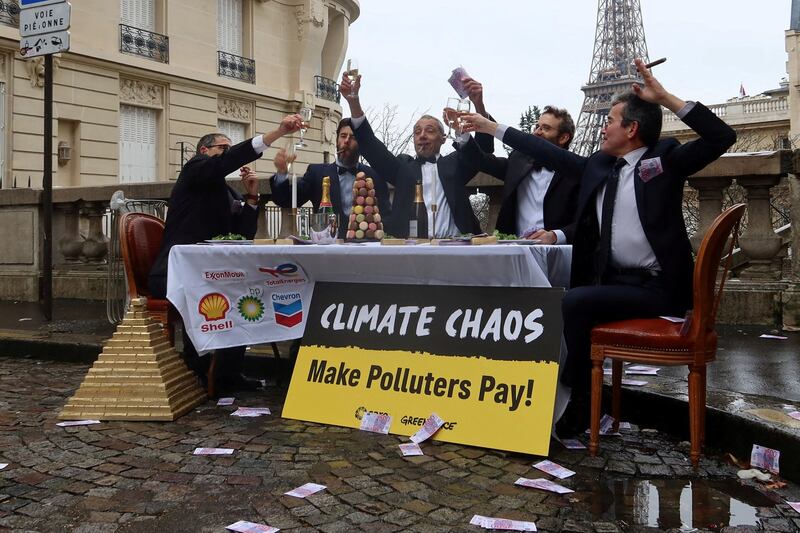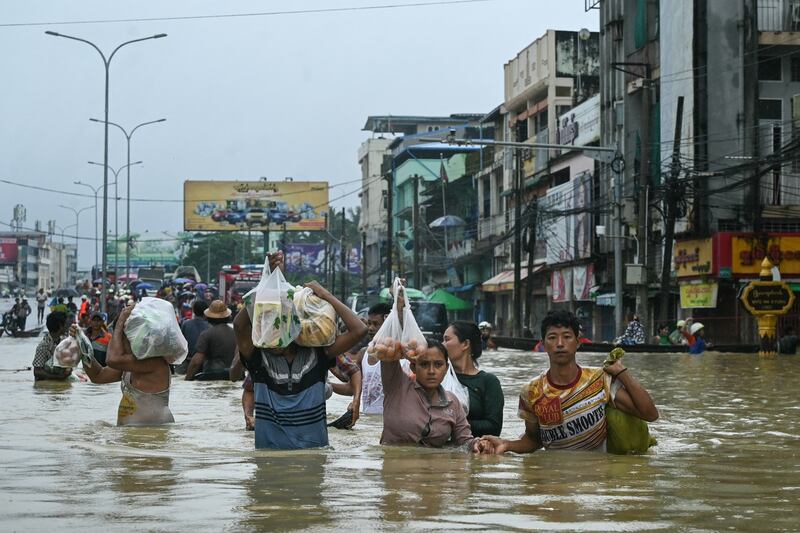More than 70,000 dignitaries from across the world gather on Thursday to attend the largest-ever COP28 as Dubai plays host, marking a historic moment for a major oil-producing nation taking the reins of the United Nations climate change summit.
At the same time, the absence of leaders from the world’s top two greenhouse gas emitters, China and the United States, casts a shadow over the two-week-long event to accelerate collective climate action.
This year’s summit takes on added significance as it occurs during what has been regarded as the hottest year in recorded human history amid a backdrop of consistently high carbon emissions. The ongoing climate crisis is causing unparalleled disruption to human lives and livelihoods globally.
“All parties should be prepared to deliver a high ambition decision … that reduces emissions while protecting people, lives, and livelihoods,” COP28 President Sultan Al Jaber, also the United Arab Emirates oil chief executive, said on Wednesday.
China’s Xi Jinping is not expected to travel to the Dubai climate summit. Instead, his special representative, Xuexiang Ding, first vice premier, will address the special high-level segment meeting on Friday, according to organizers and the Chinese foreign ministry.
Xi last attended the COP in 2015 during the landmark Paris climate agreement. In 2021, he addressed the meeting via video link at Glasgow COP26.

U.S. President Joe Biden, who attended the last two COPs, will miss this year due to the ongoing humanitarian crisis in Gaza, White House officials told reporters this week.
“The fact that there would be absentee leaders from the U.S. and China, and some of the G20 and the G7 countries, who have the most responsibility but also the most ability to resolve the climate crisis, will definitely weaken the possibilities for strong outcomes at this COP,” Matthew McKinnon, head of programs for the Geneva-based Climate Vulnerable Forum, told Radio Free Asia.
Indonesian President Joko Widodo, Malaysian Prime Minister Anwar Ibrahim, Vietnam Prime Minister Chinh Pham Minh, and the Philippines President Ferdinand Marcos Jr. are also set to attend and speak at COP28 on Dec. 1 and 2.
Representatives from Laos, Cambodia, and Thailand are set to speak on Dec. 9 and 10.

COP28 is the 28th meeting of the Conference of Parties (COP) to the U.N. Framework Convention on Climate Change (UNFCCC).
Every year, delegates from 198 nations, including heads of state and government, and many others, gather at the summit to discuss climate crisis strategies by agreeing on ways to limit temperature rise to 1.5 degrees Celsius and achieve net-zero emissions by 2050, despite criticism for slow governmental action.
This year’s key focus includes reviewing global progress on the 2015 Paris Agreement targets and finalizing a fund to help countries impacted by global warming.
Discussions on phasing out fossil fuels, particularly contentious in a significant oil-producing host country, will be challenging amid international conflicts in the Middle East and Ukraine.
Fossil fuel and climate fund among top priorities for discussion
Strategies to hasten the shift away from fossil fuels dependence will be a top priority in the discussion, according to officials and environmental activists, especially since UAE, the host, is the world’s fifth-largest oil producer.
According to a new report by the International Energy Agency last week, fossil fuel companies despite making more than double the profits compared to 2021 invested just 1% of the global investment last year in renewable energy, which saw record growth.
“The oil and gas industry is facing a moment of truth at COP28 in Dubai. With the world suffering the impacts of a worsening climate crisis, continuing with business as usual is neither socially nor environmentally responsible,” said IEA Executive Director Fatih Birol.
Last year, a battle to include the final word on fossil fuel was lost due to objections from Beijing and other oil-producing nations.
Al Jaber has said this COP is a chance to involve the fossil fuel industry in reducing emissions. However, various sources have told RFA that major oil producers, including the host country, are trying to push against a complete fossil fuel phase-out.
Instead, they prefer discussing the phase-out of “unabated” fossil fuels, which allows using polluting sources with emissions-capturing technologies, like carbon capture and storage.

A key announcement on methane emissions is expected, as the top polluters China and the US have agreed to hold a joint summit on methane, with emissions reduction pledges likely to be included in the final document.
“As we confront our reliance on fossil fuels, COP28 must be the catalyst for a fair and equitable phase-out of these fuels, taking into account the diverse capacities and historical responsibilities of different nations,” said Harjeet Singh, head of global political strategy at Climate Action Network International.
“Equity must be the cornerstone of this transition, ensuring that the most vulnerable, who are least responsible for the crisis, do not bear the brunt of these changes.”
Wealthy nations responsible for most greenhouse gas emissions have historically contributed significantly to climate change, disproportionately affecting developing countries that bear the costly consequences of those impacts.
This issue also takes center stage at COP28 as delegates work to define the operational structure of the "loss and damages fund," with a draft agreement on the setup reached earlier this month, to help vulnerable countries deal with the aftermath.
The matter remains contentious, with wealthier nations, like the U.S., opposing mandatory contributions, and asking for rich developing countries, such as China, Qatar, Singapore, or Saudi Arabia, to make contributions.
Meanwhile, COP28 will also take stock of its progress for the first time since the Paris Agreement came into effect.
“Finally, the outcome of the Global Stocktake (GST) at COP28 must be a driving force for equitable action. Rich countries bear the responsibility to fulfill their climate finance commitments, not as an act of charity but as a duty of justice,” Singh said.
A U.N. report said last week that even if nations fully adhere to their current commitments to reduce carbon emissions under the Paris Agreement framework, the Earth's temperature is projected to rise by 2.9 degrees Celsius.
“Even in the most optimistic scenario considered in this report, the chance of limiting global warming to 1.5 C is only 14 percent, and the various scenarios leave open a large possibility that global warming exceeds 2 C or even 3 Cs,” the report noted.
Edited by Mike Firn and Taejun Kang.
